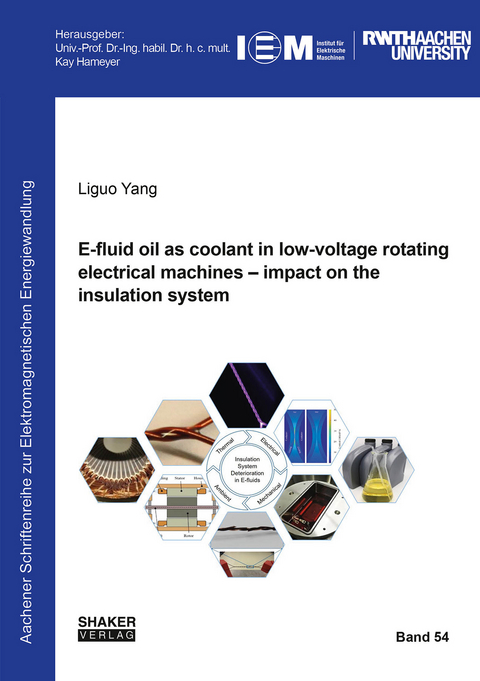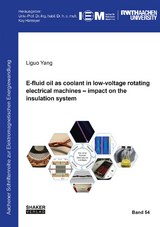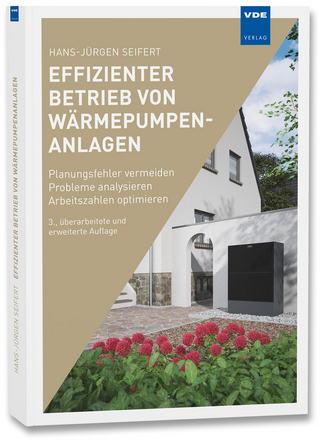E-fluid oil as coolant in low-voltage rotating electrical machines – impact on the insulation system
Seiten
The design of modern electric machines aims to increase the power density and enhance the machine’s reliability. Applying effective cooling systems is a practical approach to elevate the quantity of power density. Among a variety of modern cooling technologies, direct oil cooling has found particular attention in recent years.
From the perspective of electrical machines, the insulation system is vital in introducing cooling fluids directly into the inner space of the machine. Due to the presence of electrical voltage potential in the winding insulation system, even small damage to insulation materials may result in electrical failure of the winding insulation system or the operation of the entire electrical machine. Therefore, it is compulsory to have a fundamental understanding of the influence of cooling oils on the behaviour of the insulation system.
In this study, the thermal, mechanical and electrical ageing of the insulation system in an oil environment is analysed with experiments and numerical simulations. The effect of conductive contaminants in the oil on the dielectric properties of the insulation system is discussed. Particularly, the material compatibility of E-fluids with the insulation system is studied in deep. Through this study, the machine designers are aware of the weakness of the state-of-the-art insulation system in oil-cooled electrical machines. Meanwhile, it is gained for the E-fluid manufacturers how the E-fluid should be enhanced to ensure a safe application in electrical machines.
The design of modern electric machines aims to increase the power density and enhance the machine’s reliability. Applying effective cooling systems is a practical approach to elevate the quantity of power density. Among a variety of modern cooling technologies, direct oil cooling has found particular attention in recent years. The main advantage of direct oil cooling over conventional cooling approaches is that the coolant is allowed to be in direct contact with the heat source, and the heat path is significantly reduced. Therefore, an efficient cooling performance can be achieved.
In recent years, different cooling topologies based on the concept of direct oil cooling have been developed and examined. However, some urgent issues, such as how the applied fluids impact the behaviour of the inner components of electrical machines, have not yet been under sufficient scientific study. From the perspective of electrical machines, the insulation system is vital in introducing cooling fluids directly into the inner space of the machine. Due to the presence of electrical voltage potential in the winding insulation system, even small damage to insulation materials may result in electrical failure of the winding insulation system or the operation of the entire electrical machine. Therefore, it is compulsory to have a fundamental understanding of the influence of cooling oils on the behaviour of the insulation system.
In this study, the oil’s influence on the behavior of the insulation system is studied comprehensively, taking varying machine boundary conditions into consideration. The thermal, mechanical and electrical ageing of the insulation system in an oil environment is analysed with experiments and numerical simulations. The effect of conductive contaminants in the oil on the dielectric properties of the insulation system is discussed. Particularly, the material compatibility of E-fluids with the insulation system is studied in deep. Through this study, the machine designers are aware of the weakness of the state-of-the-art insulation system in oil-cooled electrical machines. Meanwhile, it is gained for the E-fluid manufacturers how the E-fluid should be enhanced to ensure a safe application in electrical machines.
From the perspective of electrical machines, the insulation system is vital in introducing cooling fluids directly into the inner space of the machine. Due to the presence of electrical voltage potential in the winding insulation system, even small damage to insulation materials may result in electrical failure of the winding insulation system or the operation of the entire electrical machine. Therefore, it is compulsory to have a fundamental understanding of the influence of cooling oils on the behaviour of the insulation system.
In this study, the thermal, mechanical and electrical ageing of the insulation system in an oil environment is analysed with experiments and numerical simulations. The effect of conductive contaminants in the oil on the dielectric properties of the insulation system is discussed. Particularly, the material compatibility of E-fluids with the insulation system is studied in deep. Through this study, the machine designers are aware of the weakness of the state-of-the-art insulation system in oil-cooled electrical machines. Meanwhile, it is gained for the E-fluid manufacturers how the E-fluid should be enhanced to ensure a safe application in electrical machines.
The design of modern electric machines aims to increase the power density and enhance the machine’s reliability. Applying effective cooling systems is a practical approach to elevate the quantity of power density. Among a variety of modern cooling technologies, direct oil cooling has found particular attention in recent years. The main advantage of direct oil cooling over conventional cooling approaches is that the coolant is allowed to be in direct contact with the heat source, and the heat path is significantly reduced. Therefore, an efficient cooling performance can be achieved.
In recent years, different cooling topologies based on the concept of direct oil cooling have been developed and examined. However, some urgent issues, such as how the applied fluids impact the behaviour of the inner components of electrical machines, have not yet been under sufficient scientific study. From the perspective of electrical machines, the insulation system is vital in introducing cooling fluids directly into the inner space of the machine. Due to the presence of electrical voltage potential in the winding insulation system, even small damage to insulation materials may result in electrical failure of the winding insulation system or the operation of the entire electrical machine. Therefore, it is compulsory to have a fundamental understanding of the influence of cooling oils on the behaviour of the insulation system.
In this study, the oil’s influence on the behavior of the insulation system is studied comprehensively, taking varying machine boundary conditions into consideration. The thermal, mechanical and electrical ageing of the insulation system in an oil environment is analysed with experiments and numerical simulations. The effect of conductive contaminants in the oil on the dielectric properties of the insulation system is discussed. Particularly, the material compatibility of E-fluids with the insulation system is studied in deep. Through this study, the machine designers are aware of the weakness of the state-of-the-art insulation system in oil-cooled electrical machines. Meanwhile, it is gained for the E-fluid manufacturers how the E-fluid should be enhanced to ensure a safe application in electrical machines.
| Erscheinungsdatum | 24.03.2024 |
|---|---|
| Reihe/Serie | Aachener Schriftenreihe zur Elektromagnetischen Energiewandlung ; 54 |
| Verlagsort | Düren |
| Sprache | englisch |
| Maße | 148 x 210 mm |
| Gewicht | 254 g |
| Themenwelt | Technik ► Elektrotechnik / Energietechnik |
| Schlagworte | E-fluid • Electrical Machine • Insulation system |
| ISBN-10 | 3-8440-9418-0 / 3844094180 |
| ISBN-13 | 978-3-8440-9418-3 / 9783844094183 |
| Zustand | Neuware |
| Informationen gemäß Produktsicherheitsverordnung (GPSR) | |
| Haben Sie eine Frage zum Produkt? |
Mehr entdecken
aus dem Bereich
aus dem Bereich
Grundlagen, Systemtechnik und Analysen ausgeführter Beispiele …
Buch | Softcover (2025)
Springer Vieweg (Verlag)
CHF 55,95
Wegweiser für Elektrofachkräfte
Buch | Hardcover (2024)
VDE VERLAG
CHF 67,20
Planungsfehler vermeiden – Probleme analysieren – Arbeitszahlen …
Buch | Softcover (2024)
VDE VERLAG
CHF 61,60




